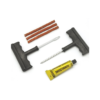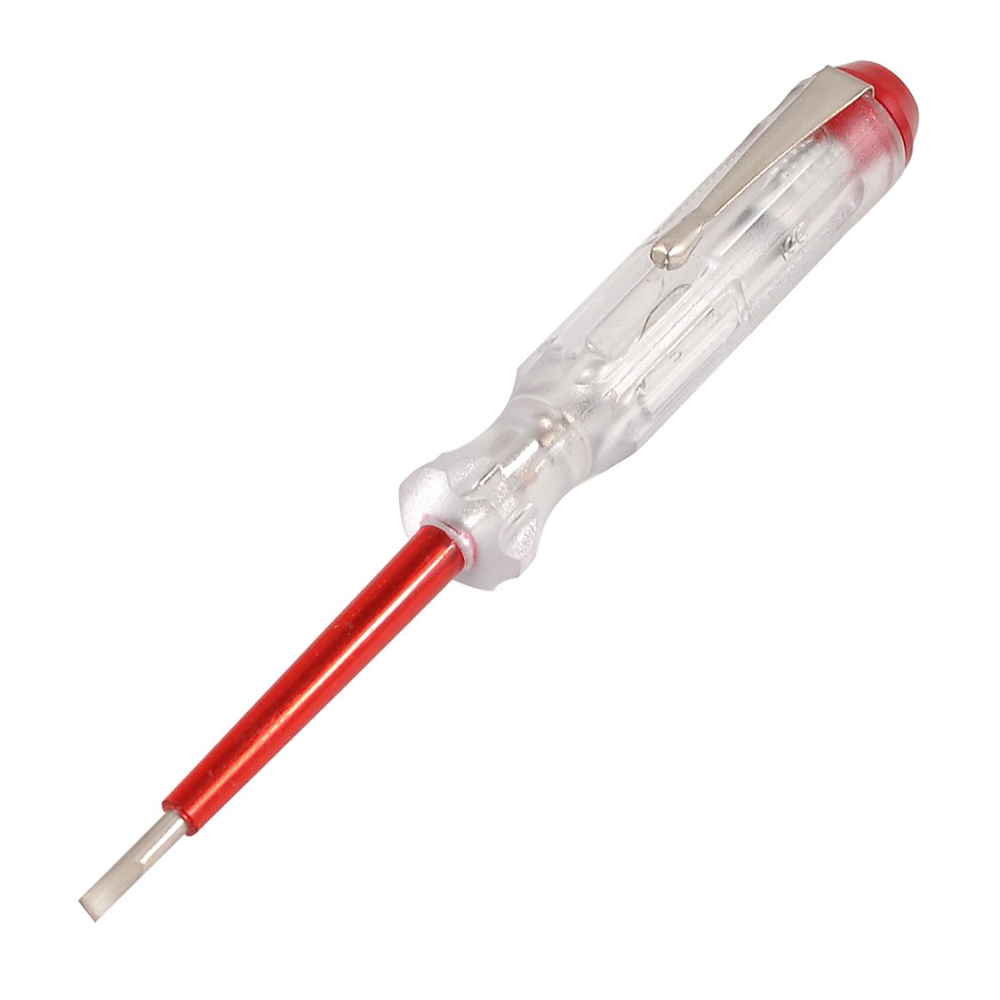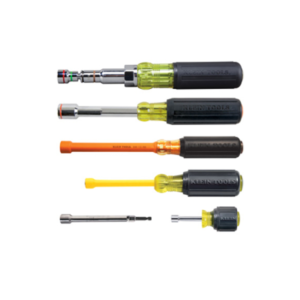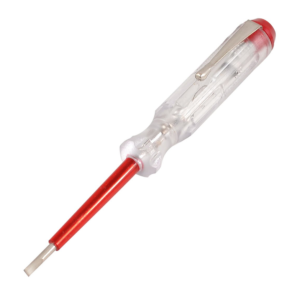🚚 Fast Delivery | ⭐ Best Quality | 📞 24/7 Support
+971 2 552 3918
info@coolwaybm.com
- Power Tools & Machinery
- Fire and Safety Equipement
Fire and Safety Equipement
- Adhesives
- Plumbing & Sanitary
- Packing Materials
Packing Materials
- Abrasives
- Carpentry
- Welding Accessories
Welding Accessories
- Fasteners
- Lock & Furniture Accessories
Lock & Furniture Accessories
- A/C Refrigeration
- Electrical
Electrical
د.إ1.00


د.إ1.00
You can add any HTML here
We suggest you to create a Saved Template in Dashboard -> Templates -> Saved Templates and use it by switching content type above to Saved template.
A tester, also known as an electrical tester, is a tool used by electricians, technicians, and DIY enthusiasts to detect the presence of electrical current, measure voltage levels, check continuity, and identify issues within circuits or electrical devices. Electrical testers are essential for troubleshooting, repair, and maintenance of electrical systems, ensuring safe handling and proper functioning of various equipment.
:
Voltage Testers: These testers are designed to check if there is an active current in a wire or outlet. Non-contact voltage testers detect the presence of voltage without touching the exposed wires, which adds an extra layer of safety. Contact voltage testers, on the other hand, must touch the conductor to give a reading and are typically more accurate. Voltage testers are widely used in electrical work to verify live wires before repairs, minimizing the risk of electric shocks.
Continuity Testers: These devices are used to check if there is an unbroken path (continuity) in a circuit, which is essential for the circuit to function. Continuity testers emit an audible beep or visual signal if the circuit is complete, allowing users to easily identify breaks in wiring or faulty connections. They are commonly used when troubleshooting electrical faults in wiring, appliances, or automotive components.
Multimeters: Multimeters are versatile testers that combine the functionalities of multiple tools in one device. They can measure voltage, current, and resistance and test for continuity. Multimeters are available in digital or analog forms and are widely used by professionals for more comprehensive testing and diagnostics in complex systems, as they provide a detailed reading across various parameters.
The primary advantage of using a tester is the ability to identify and troubleshoot electrical issues safely and effectively. Testers help detect voltage presence to prevent accidents, ensuring that users do not work on live wires. They also assist in locating faulty connections, damaged wiring, and circuit issues, making repairs quicker and more efficient. For DIY users, a basic voltage or continuity tester provides an affordable solution for home repairs, while professionals rely on multimeters for more advanced and precise readings.
In summary, testers are invaluable tools for anyone working with electrical systems. By identifying live wires, checking continuity, and measuring key electrical parameters, testers enhance safety, speed up troubleshooting, and improve the reliability of electrical repairs and installations.
There is £4.99 charge for delivery under £50 Orders. Additional charges will be imposed by our couriers for delivery to remote area, a surcharge may be levied to cover carriage to these areas.
Tester
د.إ1.00
- Used to check the presence of electrical current and identify issues in circuits or devices.
- Common in electrical work, repairs, troubleshooting, and safety checks.
- Includes voltage testers, continuity testers, and multimeters.
- Detects electrical signals to indicate voltage presence, continuity, or resistance.
- Ensures safe handling of electrical systems, prevents damage, and helps diagnose electrical issues.
A tester, also known as an electrical tester, is a tool used by electricians, technicians, and DIY enthusiasts to detect the presence of electrical current, measure voltage levels, check continuity, and identify issues within circuits or electrical devices. Electrical testers are essential for troubleshooting, repair, and maintenance of electrical systems, ensuring safe handling and proper functioning of various equipment.
:
Voltage Testers: These testers are designed to check if there is an active current in a wire or outlet. Non-contact voltage testers detect the presence of voltage without touching the exposed wires, which adds an extra layer of safety. Contact voltage testers, on the other hand, must touch the conductor to give a reading and are typically more accurate. Voltage testers are widely used in electrical work to verify live wires before repairs, minimizing the risk of electric shocks.
Continuity Testers: These devices are used to check if there is an unbroken path (continuity) in a circuit, which is essential for the circuit to function. Continuity testers emit an audible beep or visual signal if the circuit is complete, allowing users to easily identify breaks in wiring or faulty connections. They are commonly used when troubleshooting electrical faults in wiring, appliances, or automotive components.
Multimeters: Multimeters are versatile testers that combine the functionalities of multiple tools in one device. They can measure voltage, current, and resistance and test for continuity. Multimeters are available in digital or analog forms and are widely used by professionals for more comprehensive testing and diagnostics in complex systems, as they provide a detailed reading across various parameters.
The primary advantage of using a tester is the ability to identify and troubleshoot electrical issues safely and effectively. Testers help detect voltage presence to prevent accidents, ensuring that users do not work on live wires. They also assist in locating faulty connections, damaged wiring, and circuit issues, making repairs quicker and more efficient. For DIY users, a basic voltage or continuity tester provides an affordable solution for home repairs, while professionals rely on multimeters for more advanced and precise readings.
In summary, testers are invaluable tools for anyone working with electrical systems. By identifying live wires, checking continuity, and measuring key electrical parameters, testers enhance safety, speed up troubleshooting, and improve the reliability of electrical repairs and installations.
There is £4.99 charge for delivery under £50 Orders. Additional charges will be imposed by our couriers for delivery to remote area, a surcharge may be levied to cover carriage to these areas.
Reviews
There are no reviews yet.
Buy more save more!
Buy from 2 to 4 items and get 10% OFF
on each productBuy from 5 to 8 items and get 15% OFF
on each product- Free shipping on all orders above 50,00
- No hassle returns, 30 days return
- Next day delivery within your country










Reviews
There are no reviews yet.